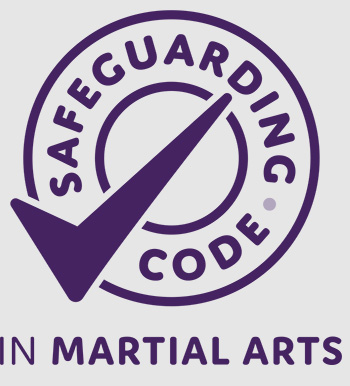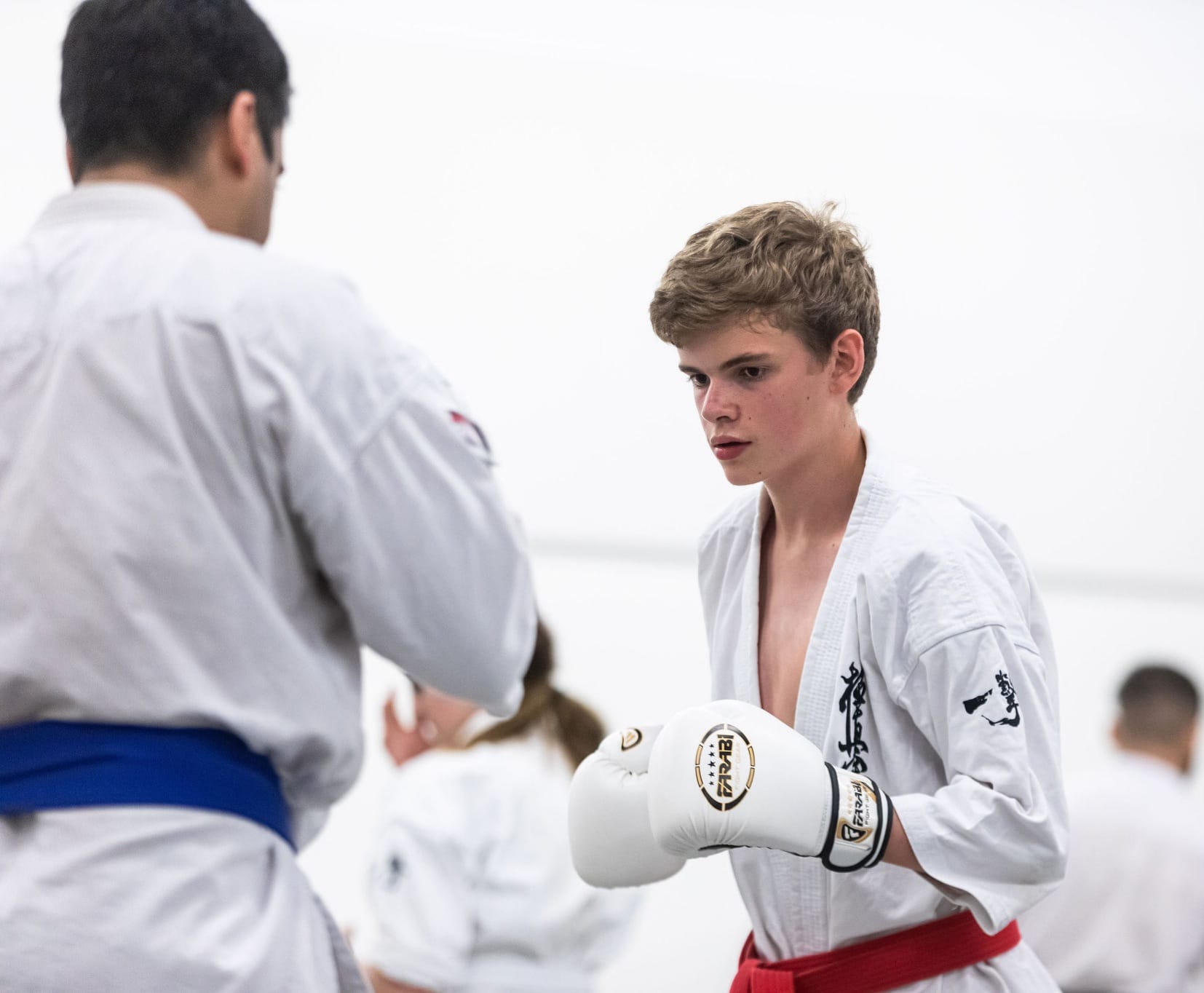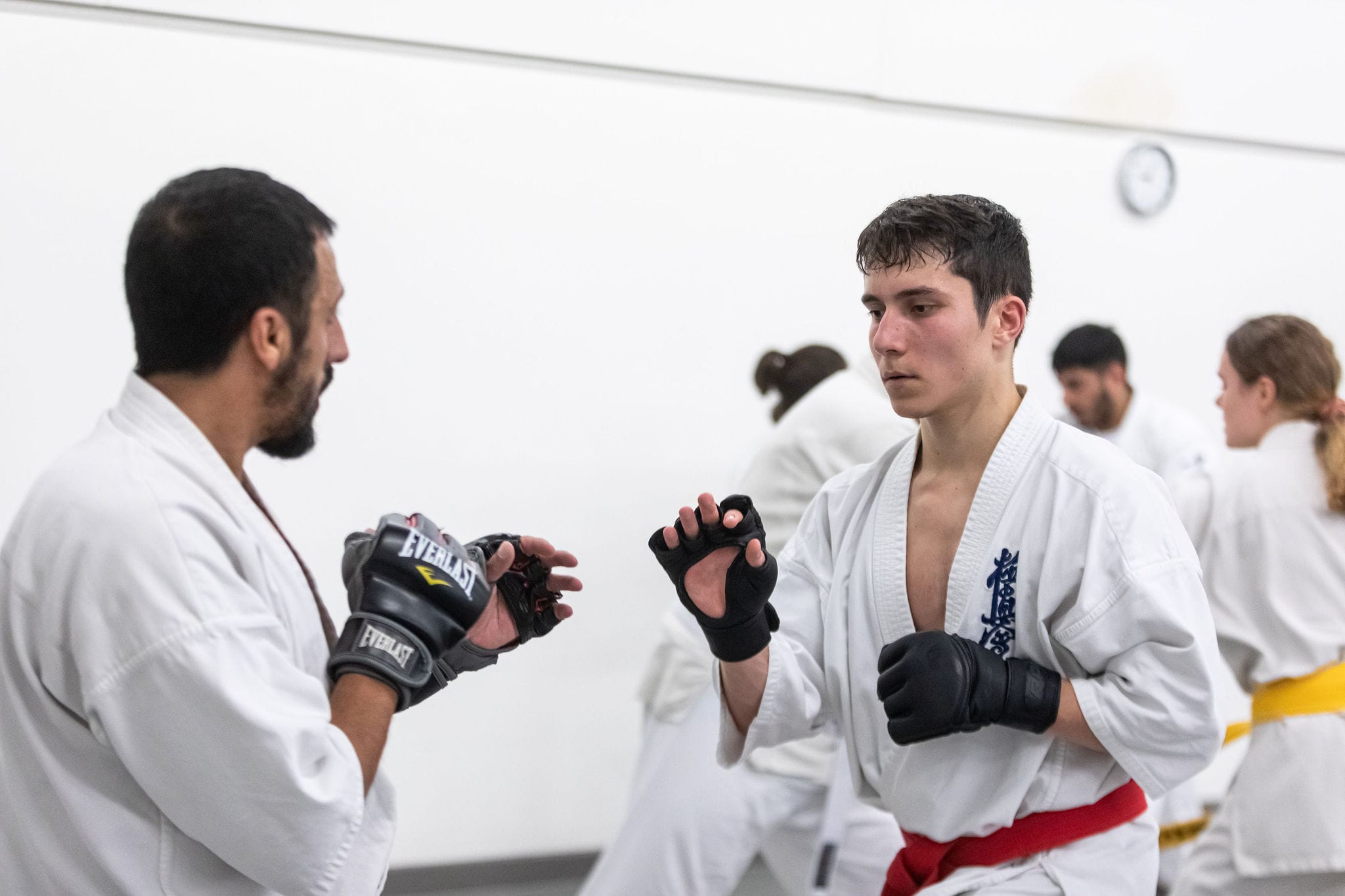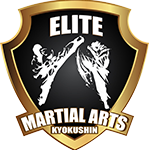Dojo Rules for Students
By joining our martial arts academy, you agree to give one hundred percent of yourself in every session. There are no excuses or second chances. Every day, every moment is an opportunity to excel, to be more, and achieve your best. Do not squander your time by going through the motions. Train hard and get results. NEVER GIVE UP!
Karate literally means empty hand. Kyokushin is a style of stand-up, full contact Karate founded in 1964 by Korean/Japanese Masutatsu Oyama. Kyokushin is Japanese for the ultimate truth, and is rooted in a philosophy of self-improvements, discipline and hard training. One of the goals of Kyokushin karate is to strengthen and improve character by challenging oneself through rigorous training. Though karate should only be used for self-defence, tournaments and to protect others, training also has other benefits. As a student masters karate techniques and gains confidence in his/her abilities, the student should gain control of other aspects of his/her life. Through rigorous training, the student will realise that, with discipline and determination almost anything is possible.
Serious study of karate should cultivate the virtues of humility, strength of character, creativity, decisiveness, patience, and respect for others. Karate training requires strict discipline and formal etiquette in order to establish a safe and pleasant atmosphere for learning.
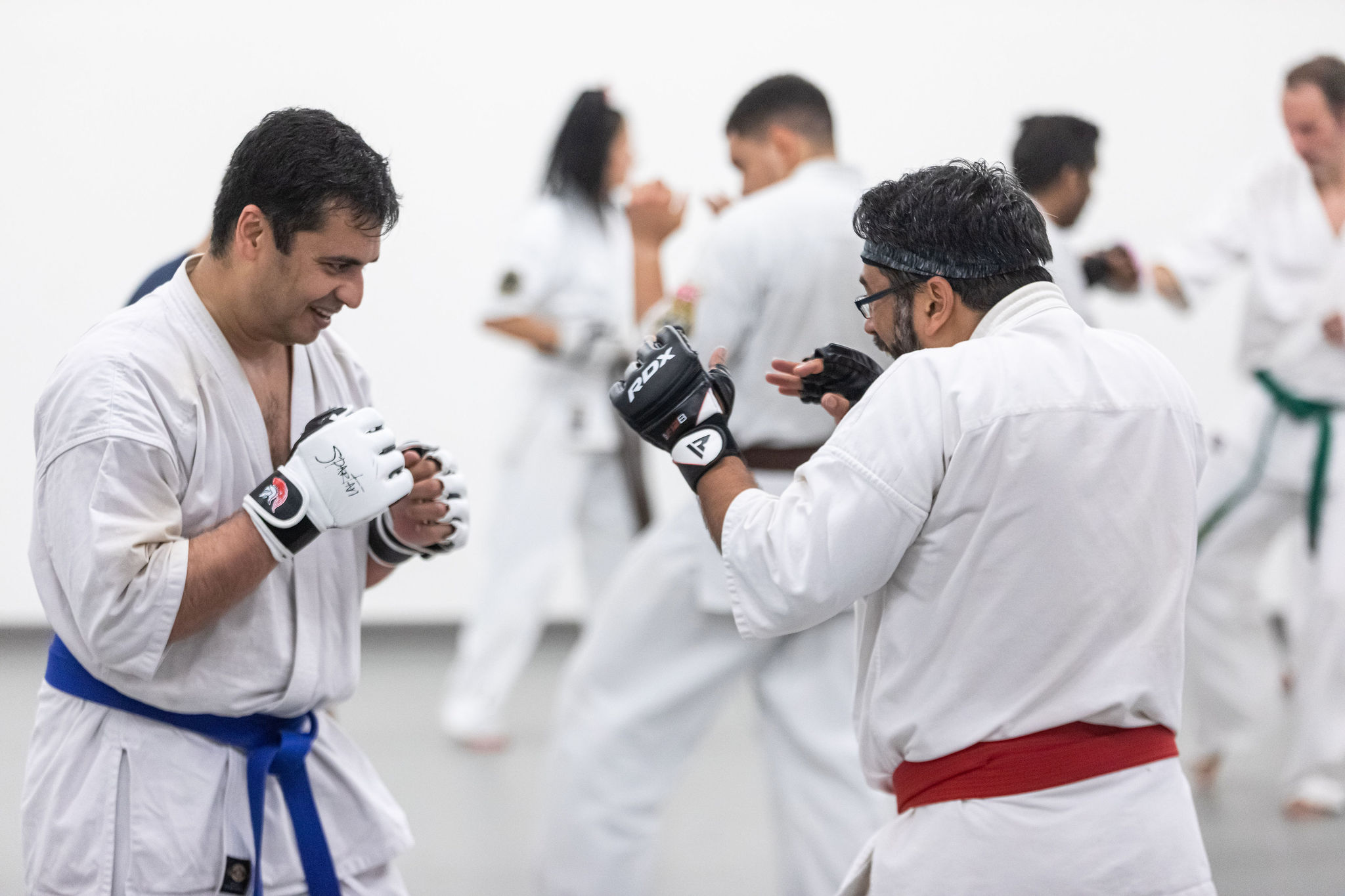
The following is a code of conduct to be observed before and during training at EMAR Dojo:
WHAT OUR STUDENTS SAY ABOUT US
All instructors are incredible, they are very good with children and truly care about them. It has a family feel that is very welcoming to both new and existing students. They work to develop the students physically, mentally and spiritually. I highly recommend this school for anyone looking for a karate school"
